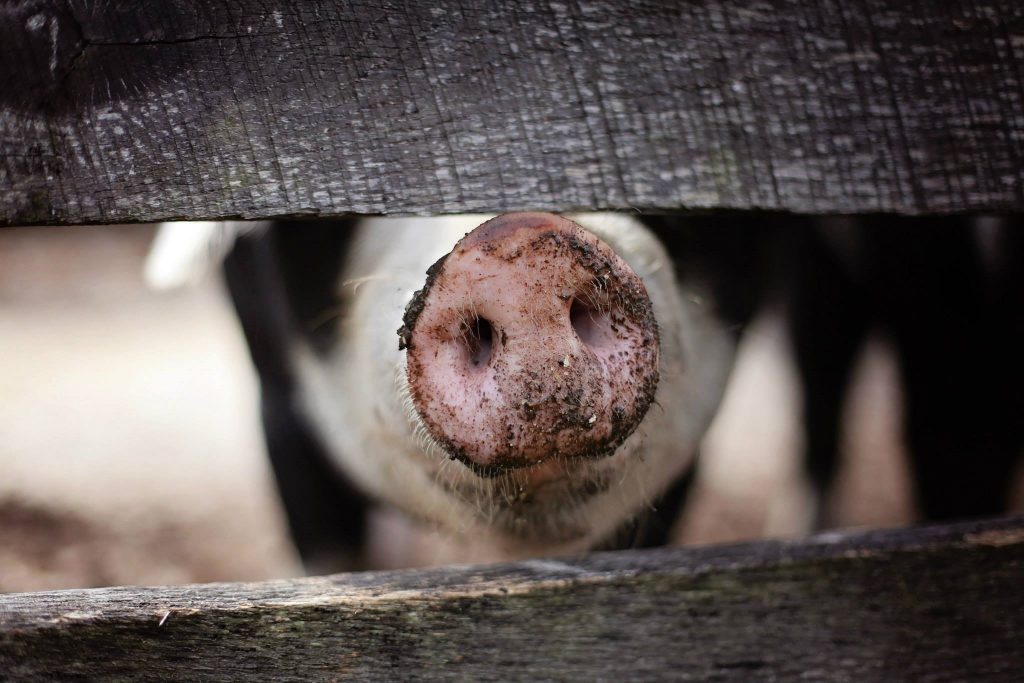The 4th Circuit Court of Appeals released their opinion on the appeal from Murphy-Brown, LLC, a subsidiary of Smithfield Foods, affirming the jury’s verdict with respect to liability for compensatory and punitive damages due to nuisances created by a nearby swine facility, but vacating the actual award for punitive damages and remanding for a rehearing using a new evidentiary standard. The jury in the district court awarded the neighbors of the swine operation $75,000 in compensatory damages with another $5 million dollars of punitive damages per plaintiff for the nuisance lawsuit. The total damages were later reduced to $325,000 dollars for each of the ten plaintiffs due to a punitive damages cap found in North Carolina law limiting punitive damages to the greater of treble damages or $250,000.
In the appeal, Murphy-Brown, LLC raised seven issues before the 4th Circuit. Six of them were completely affirmed by the Court, and one was partially affirmed, with one limited issue remanded to the district court. That issue focused on a concern for allowing the jury to decide the amount of punitive damages after hearing testimony on the “inflammatory financial evidence” of Smithfield Food’s (Murphy-Brown, LLC’s parent company) financial means, such as their pay to corporate executives. The court held that the district court should have bifurcated the trial after determining that punitive damages were warranted to avoid the undue prejudice associated with hearing about Smithfield Foods financial information. The district court’s instructions are to retry only the calculation of the punitive damages portion of the verdict.
This decision is consequential in North Carolina because this is just one of twenty-six lawsuits brought largely under the same fact pattern and legal theories against Murphy-Brown, LLC. Early in the litigation, the trial judge found that the North Carolina Right to Farm statute did not apply in these cases. The applicable language from the statute at that time was that “[n]o agricultural or forestry operation or any of its appurtenances shall be or become a nuisance, private or public, by any changed conditions in or about the locality outside of the operation after the operation has been in operation for more than one year, when such operation was not a nuisance at the time the operation began.” NC Gen Stat § 106-701 (2013). Because plaintiffs successfully argued that they, or their relatives, were living in the area before the swine facilities were built then that did not trigger the “changed conditions” language of the North Carolina Right to Farm statute. To read more about the background of the litigation click here.
The North Carolina legislature substantially changed their Right to Farm statute after the holding of the trial court; however, the changes do not retroactively apply to the twenty-six cases that are currently working their way through the federal court system in North Carolina. One of the issues that was appealed was whether one of the 2017 amendments to the North Carolina Right to Farm statute limiting damages should be applied retroactively and the 4th Circuit affirmed the district court’s decision to not allow this retroactive application of the law. This series of cases show several unique features that are not present in many nuisance lawsuits involving agriculture. Typical cases are brought against the farm itself where in this case only Murphy-Brown, LLC, the integrator, was named as a defendant. Another distinctive factor is that typical agricultural nuisance lawsuits are brought by one of more neighbors against a single farming operation. In this series of cases we see twenty-six separate operations being sued by almost five hundred plaintiffs. A third difference is that these cases are being litigated in federal court as opposed to state courts, which is where most tort actions, such as nuisance, are typically litigated.
The precedent set by these cases may not have much reach outside of the state of North Carolina because of the differences between the various Right to Farm statutes across the country. However, this series of cases is already having a substantial impact across the country. Several states, such as Nebraska, North Carolina, West Virginia, Oklahoma, and Ohio to name a few, have substantially strengthened their Right to Farm statutes in the past couple of years.
To read the 4th Circuit Court of Appeals opinion click here.
To read the North Carolina statutes on capping punitive damages click here.
To read the current North Carolina Right to Farm Statute click here.
To view all 50 states Right to Farm Statutes click here.
